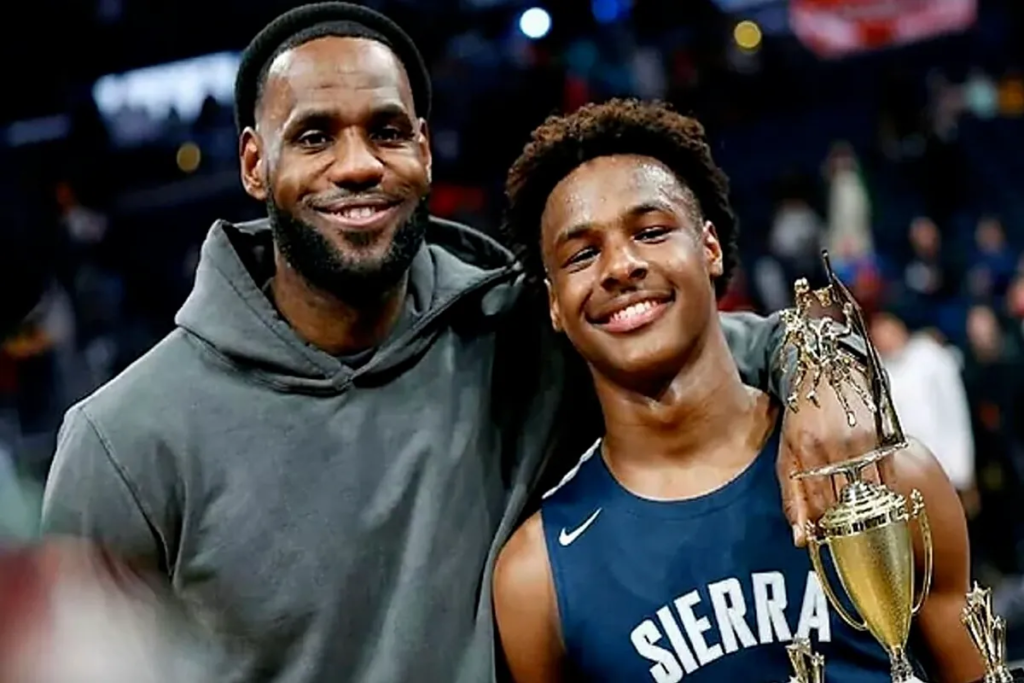Matt Barnes is not staying quiet while others drag LeBron James and his son Bronny into a firestorm of nepotism accusations.
As criticism continues to swirl around Bronny‘s NBA Draft pursuit, Barnes stepped up in full support of James, echoing a sentiment familiar to any athlete-parent.
“I would have given anything to be able to play on the same court in the NBA with my son,” Barnes said, publicly backing LeBron‘s dream of sharing the hardwood with Bronny. It’s a goal that has captured headlines, but also ignited a fierce debate over privilege and earned opportunities.
The topic has drawn intense attention following Bronny‘s announcement for the 2024 NBA Draft. Despite showing flashes of potential, skeptics questioned whether the 20-year-old would be draft-worthy if not for his famous last name.
The buzz mirrored criticism hurled at Shedeur Sanders-son of Deion Sanders-during the 2025 NFL Draft, where he slid to the fifth round despite early projections placing him in the top five.
In both cases, pundits have raised the issue of personality and “attitude,” often used as vague critiques of legacy athletes.
A family well-versed in the weight of expectations
The Barnes household knows the dynamics of legacy better than most. Matt Barnes is a former NBA champion.
Their uncle, Gilbert Arenas, was once among the league’s top scorers. And their stepfather is former Lakers head coach and player Derek Fisher.
But for twins Carter and Isiah Barnes, fame hasn’t brought an easier path-it’s only heightened the pressure.
Their mother, Gloria Govan, recently tackled the issue head-on during an episode of her podcast.
“We were just talking about Deion Sanders, you know, kids and his sons and things like that, and how they’re receiving extra criticism beyond who they are, but primarily probably because of their dad in addition,” she said.
Govan coined the phrase “nep babies” to describe the double-edged sword children of famous athletes often face.
She invited her sons to share their own views on how they navigate the expectations attached to their names. Isiah opened up about how he keeps his mental focus in check despite the legacy chatter.
“Do it for yourself in a sense, like don’t go out there trying to like… obviously like you have to defend your last name like by all means necessary. That’s what I’ve like started to look at more,” he said on the Sportsing! podcast. “Like, people will shame you because of your parents.”
Carter, on the other hand, takes a more confrontational approach to criticism-using it as fuel.
“I always tell myself they’re talking for a reason,” he said. “They wouldn’t be saying that if you were just anybody else… I’ll kill you even if my last name wasn’t what my last name is. You can’t guard me, I can guard you, it’s not even an issue.”
Read the full article here

